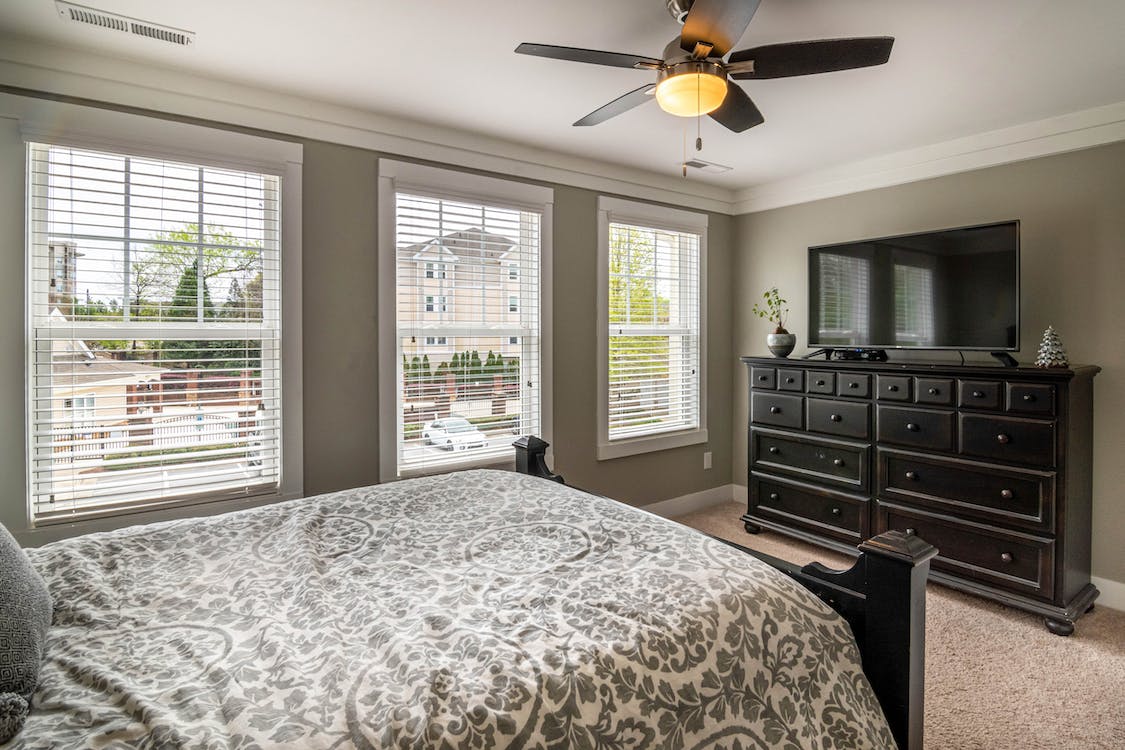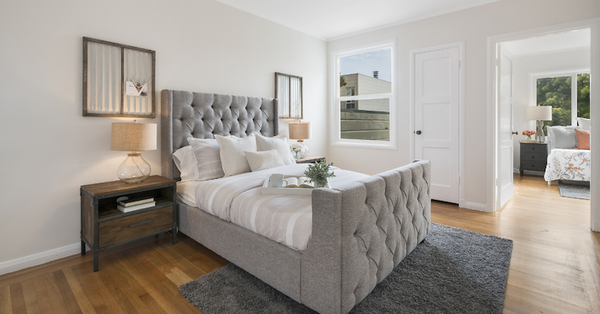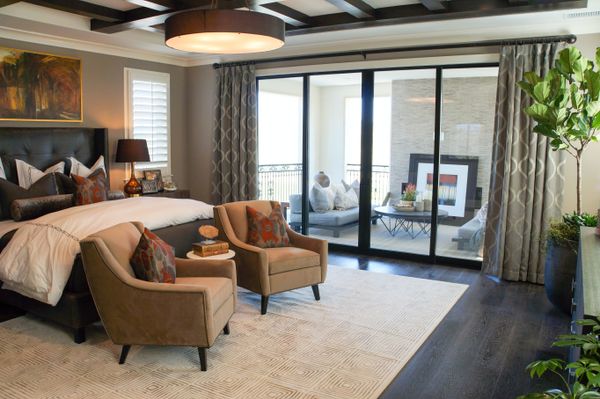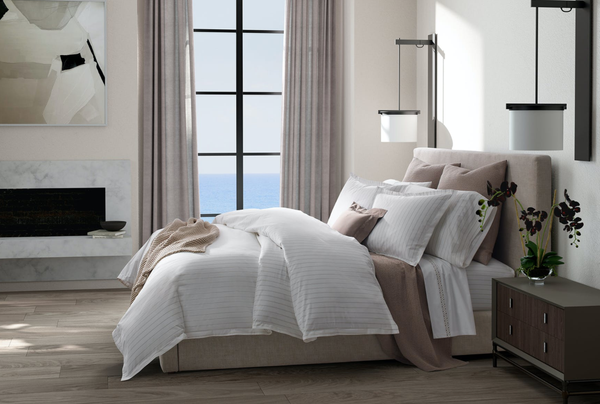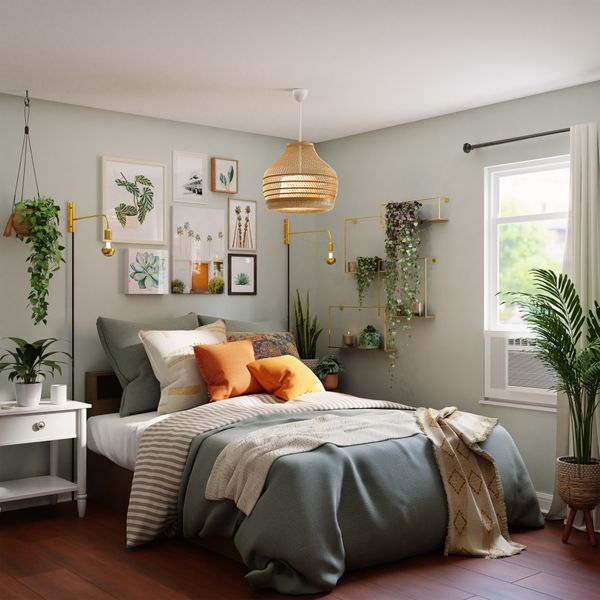When it comes to creating the perfect bedroom setup, finding the ideal TV size is an essential factor to consider. With a wide array of television sizes available in the market, it's no wonder people often feel overwhelmed when deciding which one to purchase.
This guide aims to help you make an informed choice about the best TV size for your bedroom, taking into consideration important factors like room dimensions, viewing distance, and picture quality. By the end of this article, you'll have a better understanding of which TV size will make your watching experience truly enjoyable.
TV Screen Size
If you are planning to do a new TV purchase, it is important to remember that a larger TV or a smaller TV doesn't immediately give you a better experience in watching TV. In finding the right TV for your bedroom, there are many factors to consider aside from the size of the TV itself.
1. Understanding TV Sizes and Dimensions
TV sizes are typically measured diagonally, from one corner of the screen to the opposite corner. This measurement is expressed in inches and includes only the screen itself, excluding the bezel or frame.
It's essential to keep in mind the dimensions of your bedroom when selecting a TV size, as a larger screen may be overwhelming in a small space, while a smaller screen may not offer the desired level of immersion in a larger room.
2. Determine the Ideal Viewing Distance
The viewing distance is the space between your seating area and the TV. To determine the best TV size for your bedroom, it's crucial to take the viewing distance into account. The recommended viewing distance depends on the TV's screen size and resolution.
A simple formula to calculate the optimal viewing distance (in inches) for a Full HD (1080p) TV is to multiply the screen size by 1.5. For a 4K Ultra HD TV, multiply the screen size by 1. For example, if you have a 50-inch 4K TV, the ideal viewing distance would be 50 inches (approximately 4 feet) from the screen.
Keep in mind that these recommendations are flexible, and you can adjust them according to your personal preferences and comfort.
3. Consider the Screen Resolution
Higher screen resolutions provide better picture quality, making it an essential factor when choosing a TV size for your bedroom. There are two primary resolutions to consider: Full HD (1080p) and 4K Ultra HD.
For smaller bedrooms, a Full HD TV may suffice, as the higher pixel density isn't as noticeable in smaller screens. However, for larger screens and more spacious bedrooms, a 4K TV is highly recommended. The improved picture quality will make a significant difference, enhancing your viewing experience.
4. Assess the Available Space
When selecting the best TV size for your bedroom, it's crucial to consider the available space for the TV and its stand or wall mount. Measure the width and height of the area where you plan to place the TV, keeping in mind that the dimensions of the TV itself will be slightly larger than the screen size due to the bezel or frame.
If you're planning to wall-mount the TV, ensure that the wall can support the weight and size of the television. For those opting for a TV stand, make sure it can accommodate the TV's width and weight.
5. Balance Aesthetics and Functionality
While a large TV may provide a more immersive viewing experience, it's essential to strike a balance between aesthetics and functionality in your bedroom. A TV that is too large may dominate the space and create an imbalance in the room's design. On the other hand, a TV that is too small may not provide the desired level of enjoyment.
Consider the overall design of your bedroom and the role the TV will play in the space. If you plan to watch TV only occasionally, a smaller screen may suffice. However, if you're an avid movie watcher or gamer, a larger screen may be more suitable.
6. Think About the Aspect Ratio
The aspect ratio of a TV refers to the relationship between its width and height. The most common aspect ratios are 16:9 for widescreen TVs and 21:9 for ultra-widescreen TVs. A 16:9 aspect ratio is suitable for most bedrooms, as it provides a balanced viewing experience for a variety of content, including movies, TV shows, and video games.
However, if you're a movie enthusiast who prefers a cinematic experience, a 21:9 ultra-widescreen TV may be worth considering. Keep in mind that this aspect ratio may not be ideal for all types of content, so be prepared for potential black bars on the sides of the screen.
7. Consider the TV's Smart Features
Nowadays, most TVs come equipped with smart features, including built-in streaming apps, voice control, and screen mirroring capabilities. When selecting the best TV size for your bedroom, it's essential to consider these features and their importance to your viewing experience.
If you plan on using your TV for streaming content, make sure it supports your preferred streaming platforms, such as Netflix, Hulu, or Amazon Prime Video. Voice control can also be a convenient feature, especially in a bedroom setting, allowing you to control your TV without having to reach for the remote.
8. Budget Considerations
Lastly, when choosing the best TV size for your bedroom, it's essential to factor in your budget. Larger TVs tend to be more expensive, so consider whether the increased screen size is worth the additional cost.
Additionally, keep in mind that 4K Ultra HD TVs are generally more expensive than their Full HD counterparts. By setting a realistic budget, you can narrow down your options and make an informed decision.
Conclusion
Size TV
Selecting the ideal TV size for your bedroom involves a combination of practical and aesthetic considerations. By taking into account factors such as room dimensions, viewing distance, screen resolution, available space, aspect ratio, smart features, and budget, you can create a personalized viewing experience that suits your needs and enhances the overall atmosphere of your bedroom.
TV Screens
By investing time in finding the perfect TV size, you'll be sure to enjoy countless hours of relaxation and entertainment in the comfort of your own space, enhancing your viewing experience and creating a cozy, inviting space for relaxation and entertainment.

